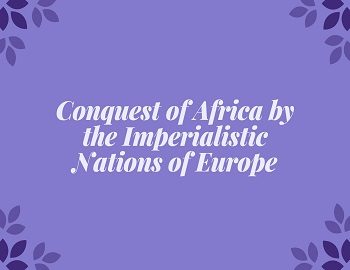Role of Philosophers in French Revolution:
There had been growing in Europe throughout the 18th century, a revolutionary spirit. This spirit was fostered particularly by the writings of French thinkers and literary men, the philosophers. French held the foremost place in the world of thought. But this Enlightenment was heralded by the work of such men as Locke, Hume, Gibbon, Robertson in England; Lessing and Kant, Goethe and Schiller in Germany, Benjamin Franklin in America. By the 1780s the philosophic tide had reached European intellectuals, but the concrete achievements were not substantial. As Kant declared in 1784, it was the age of Enlightenment, but not an Enlightened Age.
The French Revolution has frequently been ascribed to the influence of the philosophers or writers of the 18th century. The books which were issued in great numbers from the facile pens of Montesquieu, Voltaire, Rousseau, Diderot, Quesnay and many others, stirred the intellectual world to its depth. Voltaire (1694-1778) was of all of them the most conspicuous and the most brilliant. He outrightly rejected the supremacy of the church and held the higher clergy responsible for spreading blind belief among the masses and themselves leading a corrupt and luxurious life. Voltaire denounced the church as an “infamous thing”. He considered the church to be a big fraud and hated Protestants and Catholics alike. It did not mean that he had no faith in the existence of God but he was against the religious dogmas of the priests. He believed in the divine sovereignty of God and used to say, “Worship God and be a good man”. Though he was the prince of rationalists, Voltaire believed in an absolute monarchy. As he said that he preferred to be ruled by one fine lion than by two hundred rats.
Montesquieu (1689-1755), a French lawyer and nobleman, was an admirer of the British Constitution. It was a monarchy, which was limited in power and controlled by an elected assembly. He wanted that a constitutional government should also be established in France. He wrote a book entitled “The Spirit of the Laws” after twenty years of hard labour. He stressed in this book that the power of the executive, the legislature and the judiciary should be separated completely. He was of the opinion that the unification of these powers would centralize all power in one person or a party which in due course of time either would spoil the entire administration or would lead to the making of a dictator. In his satire The Persian Letters, Montesquieu attacked the privileged aristocracy, the corruption of the court and the folly of religious intolerance.
The most revolutionary among the philosophers was Jean Jacques Rousseau (1712-1778). Napolean himself had avowed, “There would have been no French Revolution if Rousseau had not existed”. The influence of his books “The Social Contract (1762)” and “Discourse”, was profound. His principal theory was that man was essentially good, but corrupted by civilization. “Man is born free, but everywhere he is in chains”. All government was the outcome of an agreement of contract framed by the people for the promotion of their welfare. Hence all government rests upon the consent of the governed and no ruler can deprive the individual citizen of his natural rights to life, liberty and property. It was Rousseau who made famous the doctrine of “popular sovereignty”. Above all, he inspired men to believe in democracy and equality and seemed to open to the individual a new world.
A group of writers known as Physiocrats or Economists strongly criticized the economic system of France. They were much influenced by the writings of Adam Smith, the English economist who is usually regarded as the greatest protagonist of free trade. Protectionism benefited nobody; therefore all restrictions were bad. Free trade would raise the price of goods, higher prices would stimulate productivity, and so in the long run there would be economic prosperity. Accordingly, Physiocrats advocated the abolition of control on the grain trade and of internal customs barriers. Their leader was Quesnay. His Theory of Taxation, Mirabeau’s Friend of Mankind moulded their thought. They advocated complete free trade. They held that land was the chief source of wealth and so all taxation should be reduced to a single land tax.
Diderot was also one of the important intellectuals of France. He was an ardent opponent of all ancient institutions. In 1792 he edited a great Encyclopaedia. Diderot especially attacked the autocracy of the king, privileges of the church and nobility, defective taxation system, slave system and blind beliefs of the French people. His famous Encyclopaedia gave birth to rationalism in France and he contributed much to the outbreak of the French Revolution.
In respect of revolution, the contribution of thinkers may be disputed but they had forecast the Revolution. Thinkers may not have fathered the doctrines of Revolution but they were, undoubtedly disseminators of Revolution. Through their conjoint efforts, the writers promoted a mentality in the majority of people that whatever they experienced in France was inadequate and full of errors. They created a party of leaders and presented them with certain principles, idioms and material for discussion. Besides, they kindled a strong hope in their mind and paved the way for their success. All demerits and evils rampant in the governing system of France were revealed so effectively by writers that people were constrained to rivet their attention to the factors of crisis and have a creative debate upon them with great enthusiasm. On the whole, it may be deduced from the above facts that if thinkers and writers did not become the decisive factors of the Revolution, their provocative thoughts proved to be good incentives needed for Revolution. They were representatives of those driving forces which fretted the external layers of French life. The nature of writers was like the flaring heat that radiates from an erupted volcano and does not fail to transpire blazing heat into every object which comes into its contact. The fire of their thoughts consumed the ties that intellectuals held with the established authority and order.









Comments (No)